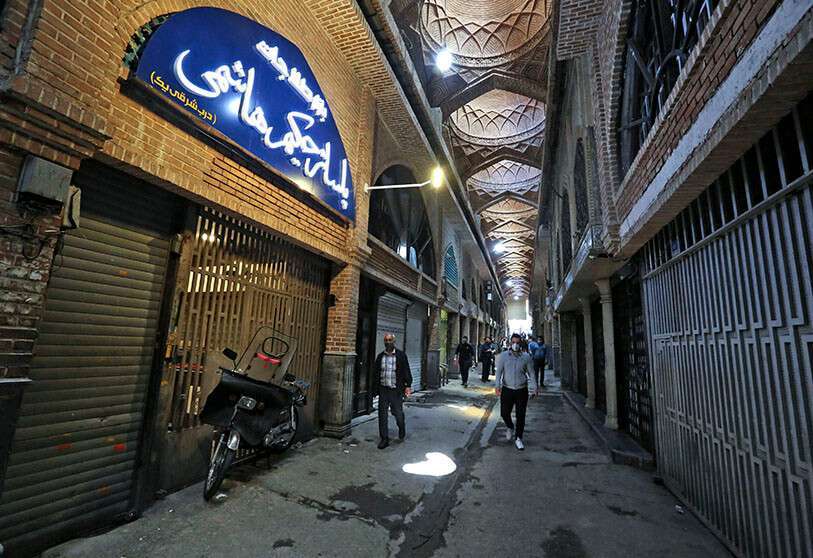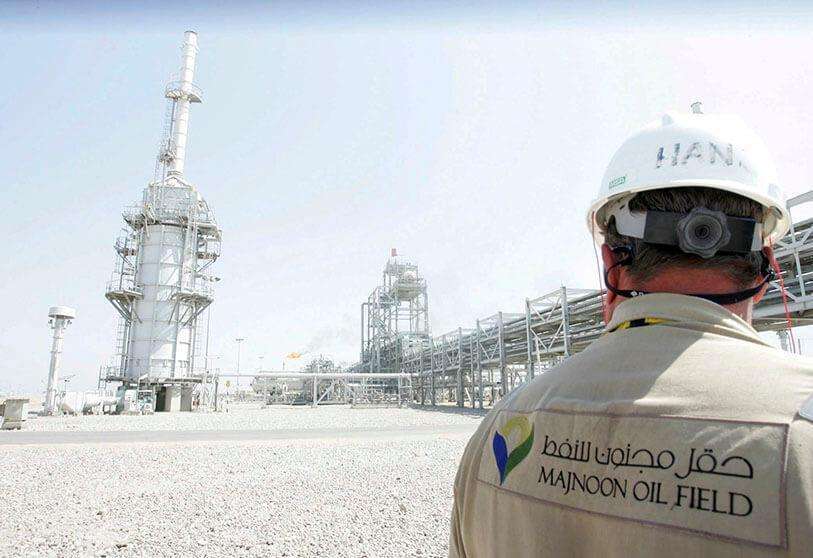Iraqi campaign against Iranian goods

In the midst of one of the coldest winters in recent years, Iraqi citizens are facing power outages that have lasted up to 20 hours a day. This situation - which has been the general trend in recent months - has led to episodes such as the one last Saturday, when Baghdad, the country's capital, remained in complete darkness overnight, with only two hours of electricity supply during the course of the day.
A few weeks ago, the Iraqi Ministry of Electricity commented on this issue, stating that these power cuts are the result of interruptions in the distribution of natural gas from Tehran. "The decrease in gas supplies from Iran, of which 8.5 million cubic metres per day, compared to the agreed amount of 50 million cubic metres, has significantly affected power processing rates in the capital Baghdad," ministry officials said a few weeks ago, according to Al-Sabaah media.
"Several stations have been affected by this issue, including Al-Quds, Al-Mansuriyah, Al-Sadr, Al-Ghaza and Basmaya, which is causing the loss of approximately 4,500 megawatts of power," they added.

In the same vein, the Iraqi authorities have also referred to budgetary constraints, which have diminished "the maintenance of the momentum of work in the production, transmission and distribution sectors".
Now, in response to this situation, Iraqi citizens have called on social media to boycott the consumption of products imported from Iran - which are practically flooding markets in the Arab country. The campaign, launched by several journalists and activists, aims to reduce Baghdad's economic dependence on Tehran while supporting Iraq's local trade. In addition, the Persian population aims to protest against the Iranian government's pressure to cut off and manipulate electricity, gas and water supplies in order to consolidate its influence in the country.
Baghdad's punishment of the Persian export economy could further worsen the situation in Iran, which is currently mired in a severe financial crisis. The suffocating economic sanctions imposed by the United States following the abandonment of the nuclear deal, the fall in oil prices and the consequences of the pandemic are some of the factors that have led to the devaluation of the Iranian rial, as well as a year-on-year inflation rate that has almost reached 60 per cent.

Trade in the Iraqi market represents a major opportunity for Tehran to offset economic sanctions stemming from uranium enrichment, as it has been able to expand strongly, both politically and economically, into Iraq since the fall of Saddam Hussein's regime in 2003. Indeed, the second formation of the Iraqi parliament is controlled by the pro-Iranian paramilitary coalition 'Popular Mobilisation Units', which maintains close relations with Tehran and gives the Persian country enormous influence over political and security decisions.
For their part, the Iranian authorities have argued that the natural gas supply cuts are due to the high energy demands of the Iranian public, as well as Baghdad's inability to meet its debts, which now total around $260 million. However, the impediments that have complicated these payments have little to do with budgetary issues. Between the sanctions imposed on Tehran, Washington made it unfeasible to make payments in US dollars, forcing the two countries to renegotiate and seek solutions through trade agreements.

Although Iraq is one of the world's leading oil producers - and the vast majority of its revenues come from crude oil - the country is highly dependent on Iran for natural gas. In addition to importing energy derivatives and other commodities that make Iran the country's second largest trading partner after Turkey, Baghdad requires between 1.5 and 1.8 billion cubic metres of Iranian gas per day.
This dependency has been driven by the deterioration of the electricity and energy system that Iraq has been facing since the 1990s. For decades, the country has witnessed large protests against power cuts, especially in the summer months - when temperatures can reach over 40 degrees Celsius. This was the case last July, when rising debt and Iran's reluctance to supply gas and electricity pushed the country into a massive energy crisis. Similarly, the rise to power of electricity ministers linked to corruption and embezzlement schemes has not helped large investments in energy security achieve favourable results.








